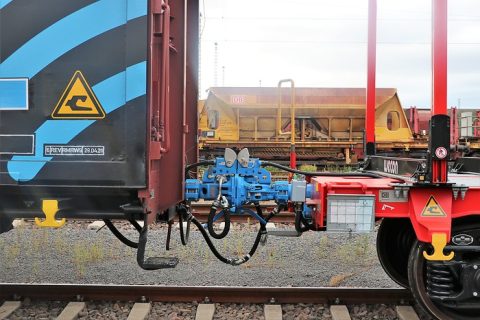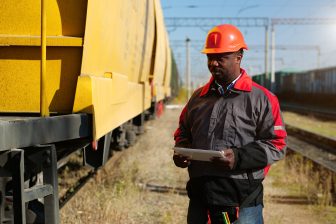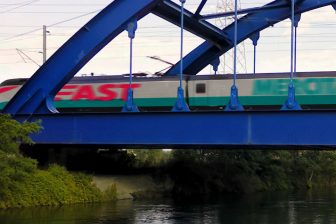
Deutsche Bahn completes digital freight train test run
Deutsche Bahn (DB) has completed the first practical test of the so-called digital freight train. This test train was equipped with various prototypes of digital automatic couplers (DAC). The trial convoy ran throughout Europe for several months to assess the functionality of DAC under different conditions to identify possible weak points.
The next step, as DB pointed out, should involve the DAC manufacturers to have it ready for series production. Moreover, the German Ministry for Digital Affairs and Transport (BMDV) has unlocked an additional seven million euros for a further test phase. It is unclear for now what kinds of tests this new phase would entail. Up to the end of 2022, the German Ministry invested around 13 million euros for the test phase just concluded. With the new injection of seven million, the total investment from the BMDV in the DAC project reaches 20 million euros.
DAC4EU
DB is part of the DAC4EU consortium together with the Austrian and Switzerland national rail freight companies: Rail Cargo Group and SBB Cargo. Moreover, VTG, GATX, and Ermewa, all involved in the rolling stock business, are part of the DAC4EU as well. The consortium was put in charge of testing and approving the DAC by the BMDV in June 2022.
SBB has also recently started tests for the so-called DAC+ technology. The pilot train set up by the Swiss company is equipped with an automatic coupler including a digital data line. The pilot train consists of six container wagons and a covered wagon that will act as a locomotive. The tests will be carried out throughout Switzerland until the end of 2023.
Digital Automatic Coupling
In Europe, freight wagons are currently connected manually to the screw coupling. With each coupling process, a screw weighing more than 20 kilos has to be lifted and the air line connected. This accident-prone activity has to be carried out around 300 times per shift, regardless of the weather. DAC automates this process making it faster and safer. However, sectors of the European rail freight industry expressed concerns regarding insufficient tests and financial issues that would make it problematic to implement DAC by 2030, as the EU plans.
The Federation of Independent Rail Operators (ZNPK), a Polish rail freight association, for example, pointed out that the project launched by the EU seems to be quite rushed. The timeframe for 2030 does not seem to give sufficient time for rail companies to assess their next steps, and the business case for the entire industry is questionable. ZNPK and other associations are lamenting that the parties involved seem to have skipped the “if” question, focusing on the “how”, which is considered a tad premature.
Also read:




